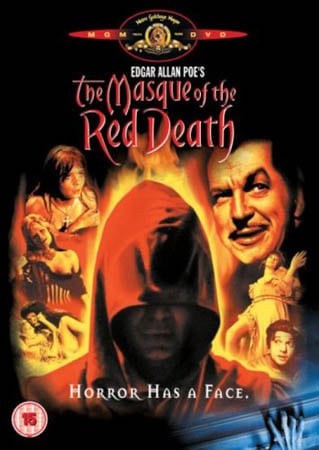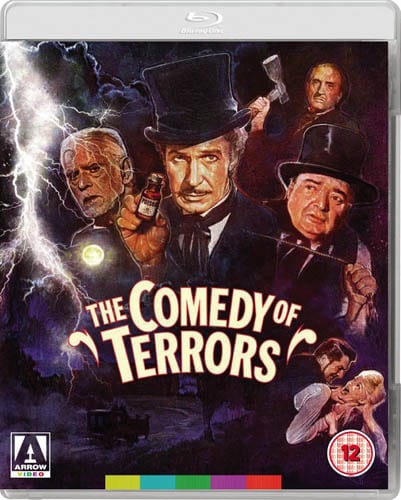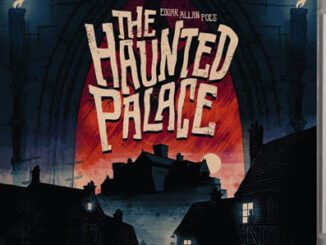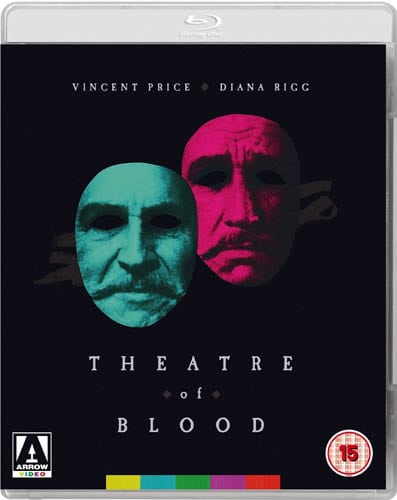The Masque of the Red Death (1964)
Directed by: Roger Corman
Written by: Charles Beaumont, Edgar Allan Poe, R. Wright Campbell
Starring: Hazel Court, Jane Asher, Vincent Price

THE MASQUE OF THE RED DEATH (1964)
Directed by Roger Corman
The Masque of the Red Death is what you might call a historical curio; it’s probably spooky as all hell to a 1960s cinema-going public, but it’s oddly twee and innocent today. It’s not remotely scary; a product of its time in its preoccupation with hokey Satanic themes that now seem dated and bleached of dread.
Still, it’s not without its gloomy, morbid charms. Part of Roger Corman’s “Poe-Corman cycle” that plundered the work of Edgar Allan Poe, that American legend of the dark and weird, “The Masque of the Red Death” loosely adapts and expands Poe’s classic short story, spinning a narrative of presumptuous occultism and tyrannical hubris out of the hauntingly brief original. It stays true to the basic spirit of Poe, nasty and grim, albeit in what now seems a rather innocent way (possibly barring an incident of a man being burned alive that was snaffled from another Poe story).
Vincent Price is a strong fit for the material as the smug despot, Prince Prospero. His distinctive, biting tones are gainfully employed delivering his lines with cruel gusto, as he attempts to seduce Jane Asher‘s wide-eyed peasant girl to the cause of Evil, while presiding over a court of degenerate nobles, shut up in his fortress to escape the titular plague scouring the country outside. Dark powers are invoked, sadistic games are played, and doom mounts as the lethal plague picks the gloomy landscape clean. There are shades of The Seventh Seal in the proceedings, especially in the form of the mysterious red-cloaked figure whose appearance heralds the beginning of the plague.
My strongest impression from all this was of ambition out-stripping resources (although I’m sure a lot of effort went into the original production), as though a far grander story is straining to make its gruesome set-pieces and gleeful morbidity known. In fact, I would go so far as to say that this is one story that could really thrive as a modern remake, in the hands of a suitably inspired and dedicated filmmaker. Unrestrained by concerns of censorship or decency, a 21st century Prince Prospero played by a charismatic actor (for some reason, Michael Fassbender pops into my head as I type this), backed up by lavish production values and a mature handling of the original stories resonant themes of death and decadence, could blow any number of stale slashers out of the water.






Be the first to comment